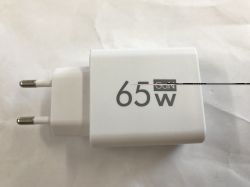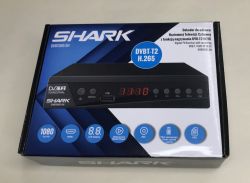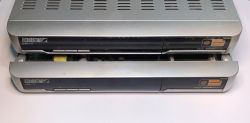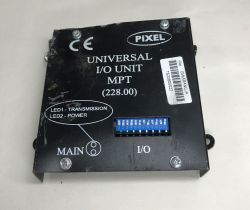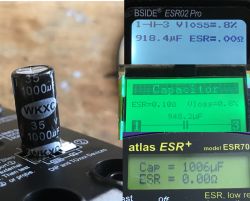
I invite you to a short comparison (gallery) of the BSIDE ESR02 Pro component tester. I will compare its results here to the classical ones LCR-T4 , known from the elektroda shop, to the previously described ESR70 , and in some cases to the results shown by the Brymen BM857S multimeter.
Purchase BSIDE ESR02 Pro
The prices of this tester vary, in our country you can get it for less than PLN 100, but if you import it from China it may be cheaper. In this case, my friend bought the tester, he was convinced by the promising advertising of its capabilities, but what is it really like?
I took the tester with me because I had something to compare it with.
The tester comes in a box:
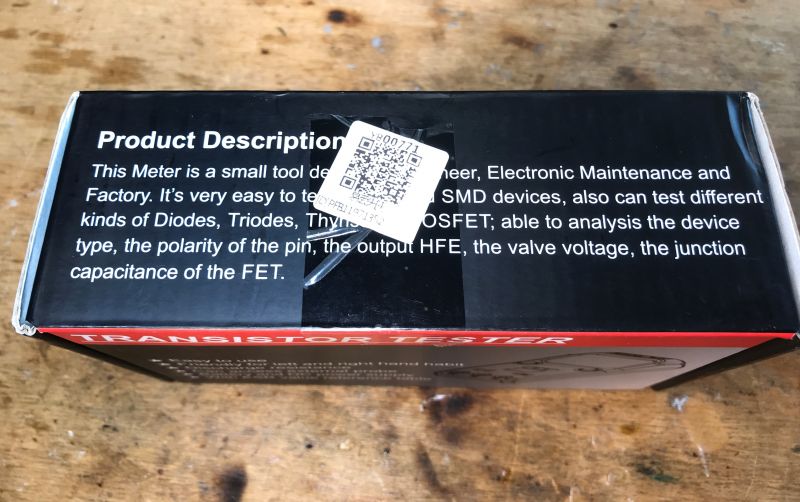
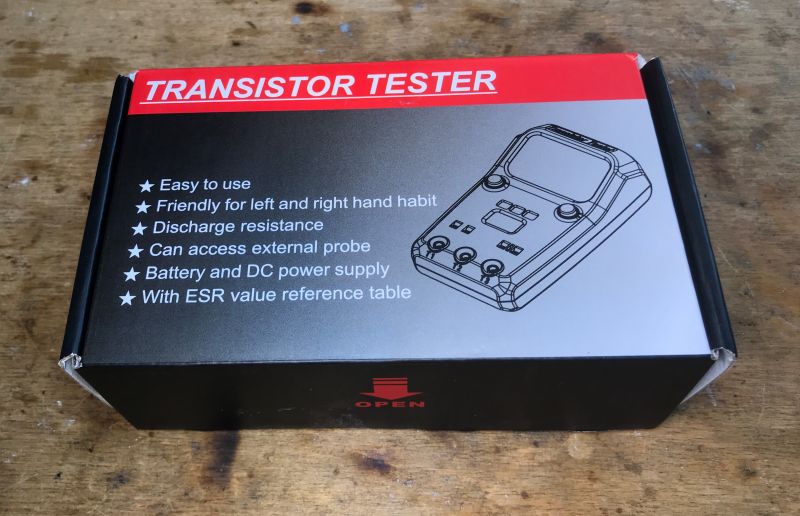
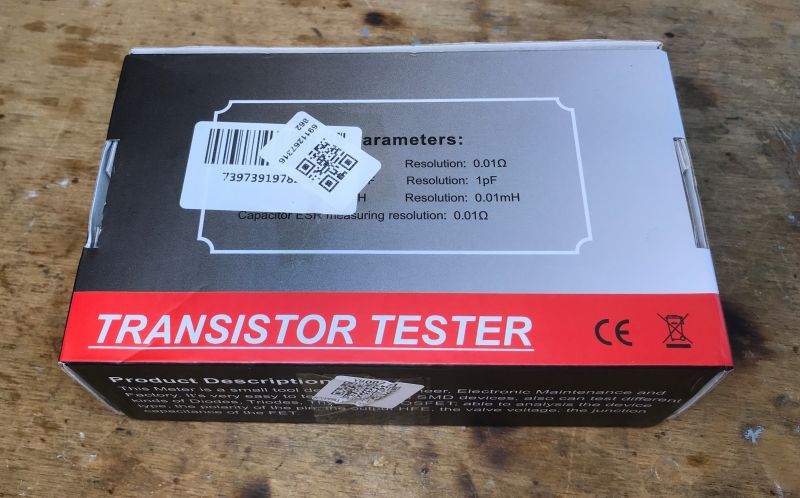
There is also an instruction manual with the procedure calibration : :
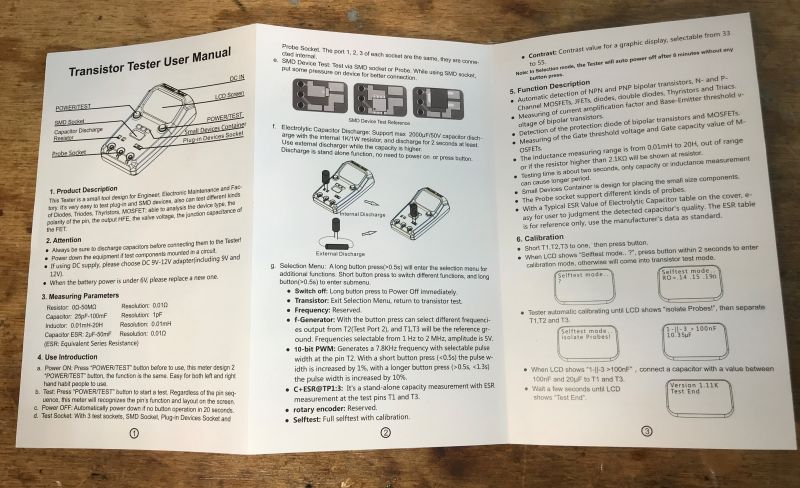
I don`t know why the tester arrived in such a condition:
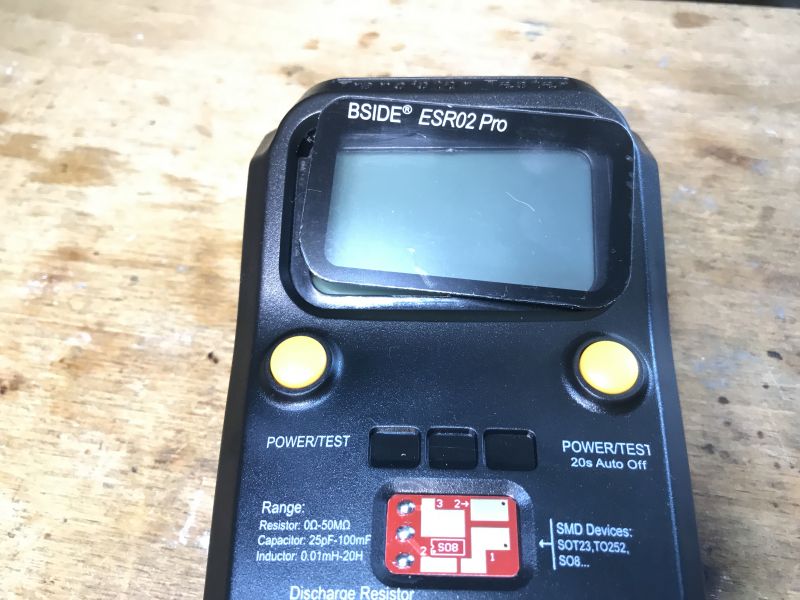
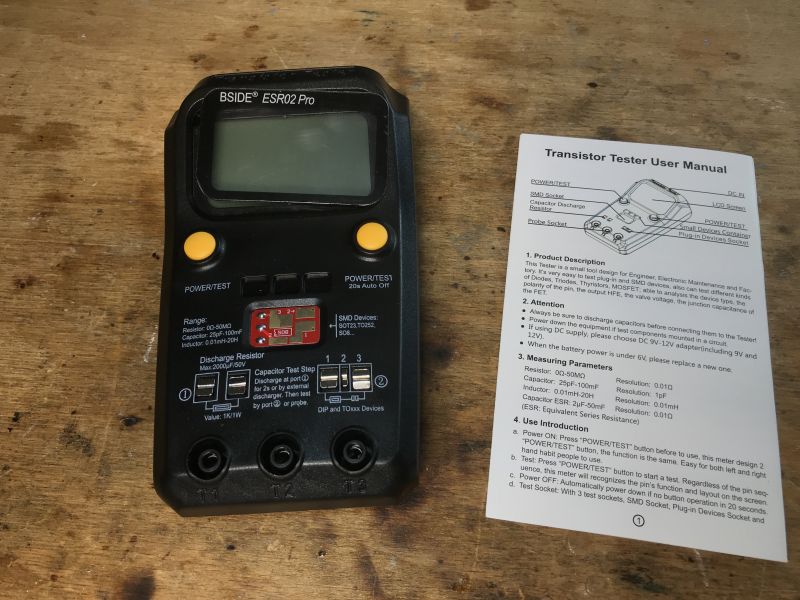
The battery is not included, there is an ESR table on the back:
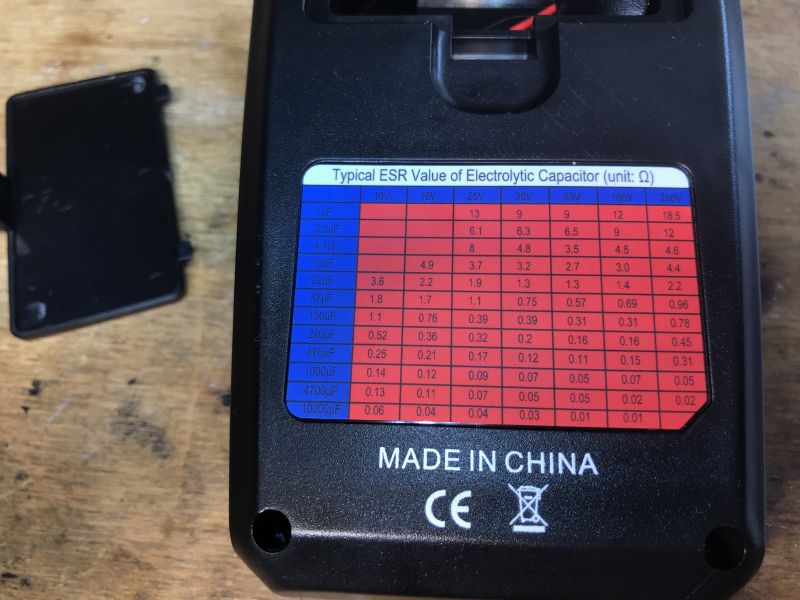
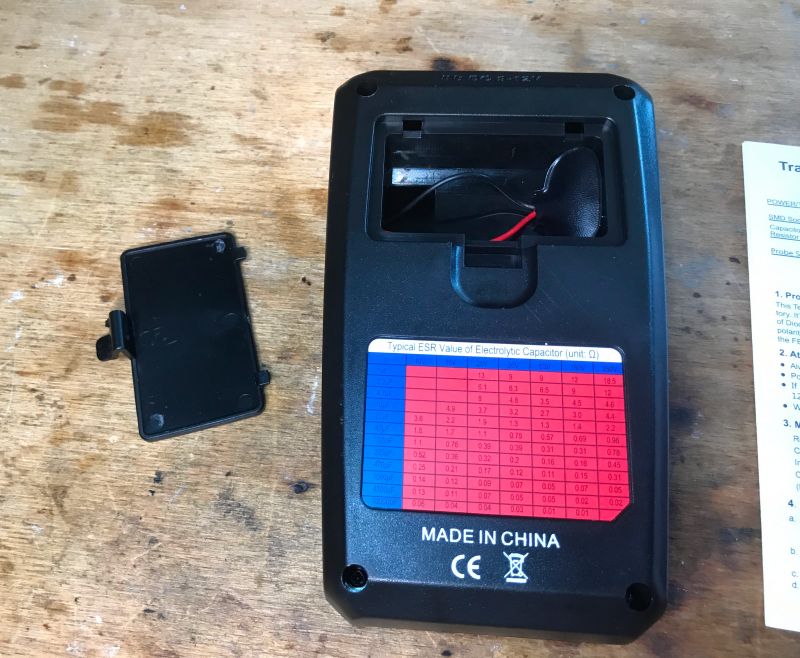
You need to give it a good battery, otherwise it may not turn on:
Fortunately, I have a stock of them:
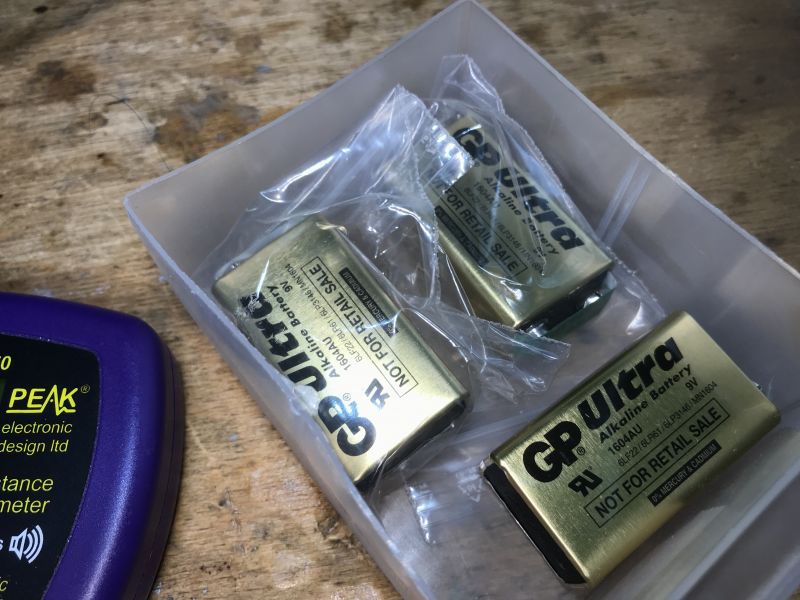
I also performed calibration:
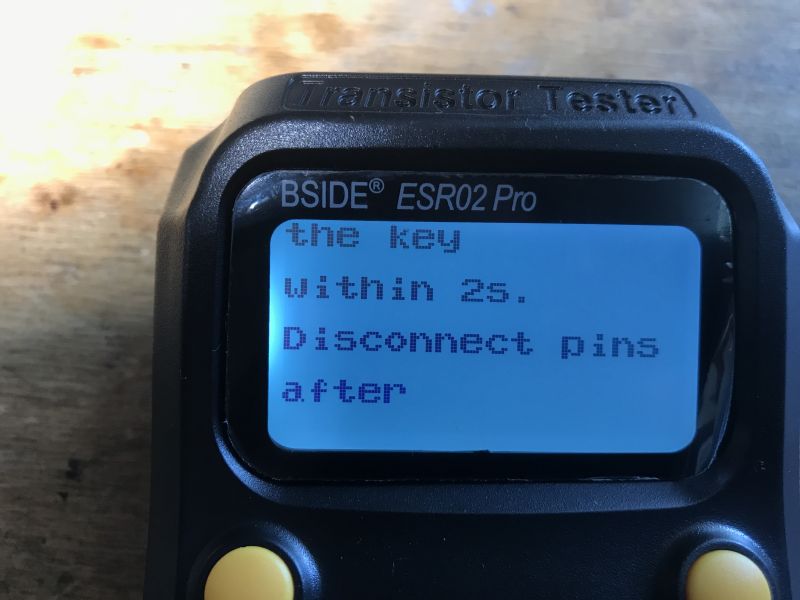
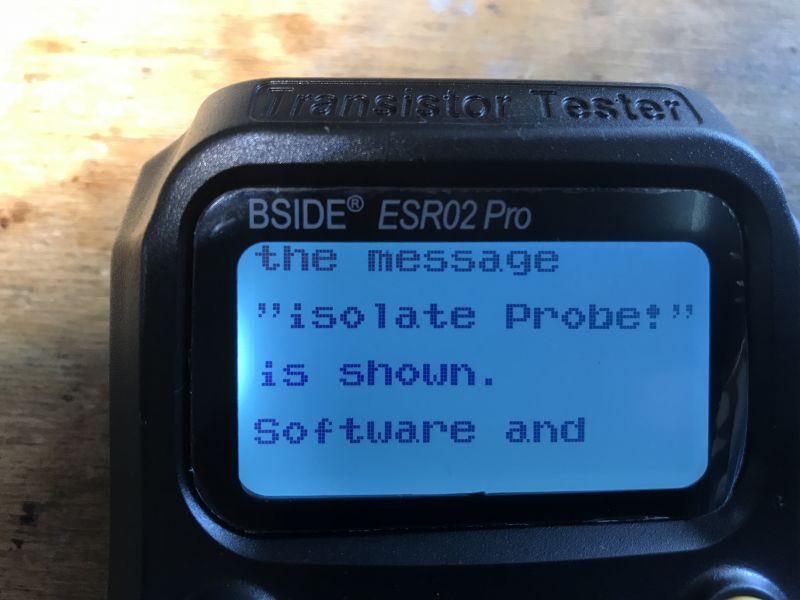
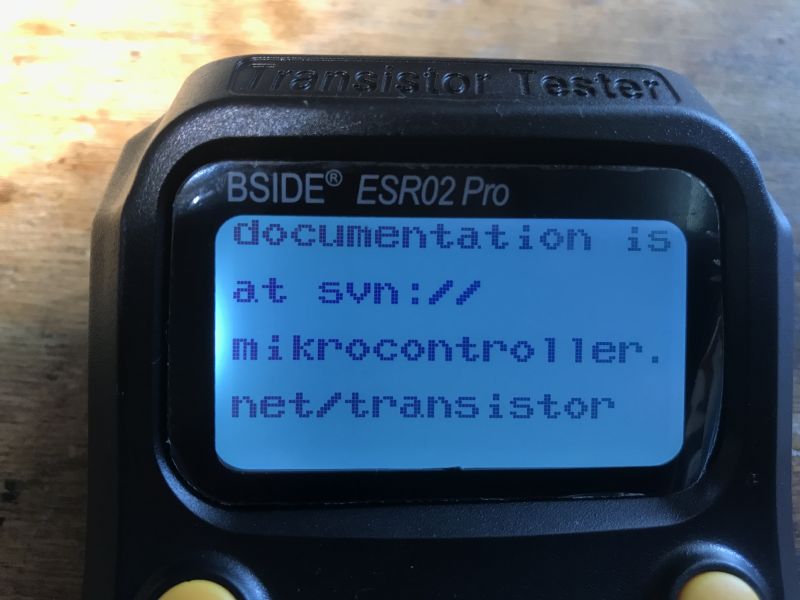
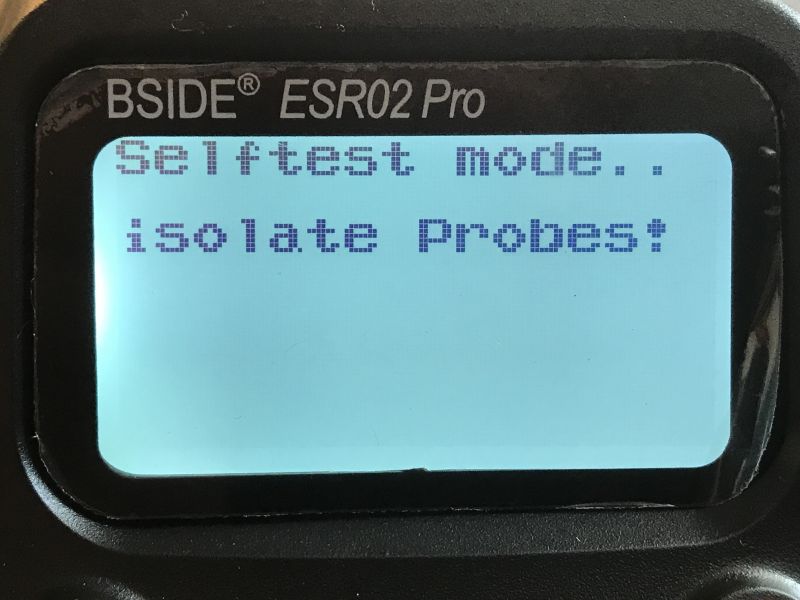
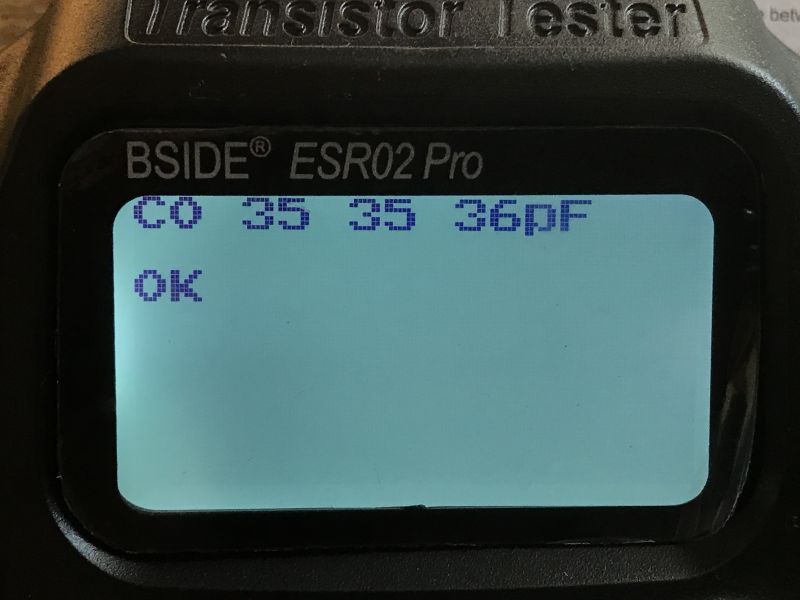
After calibration, we start testing:
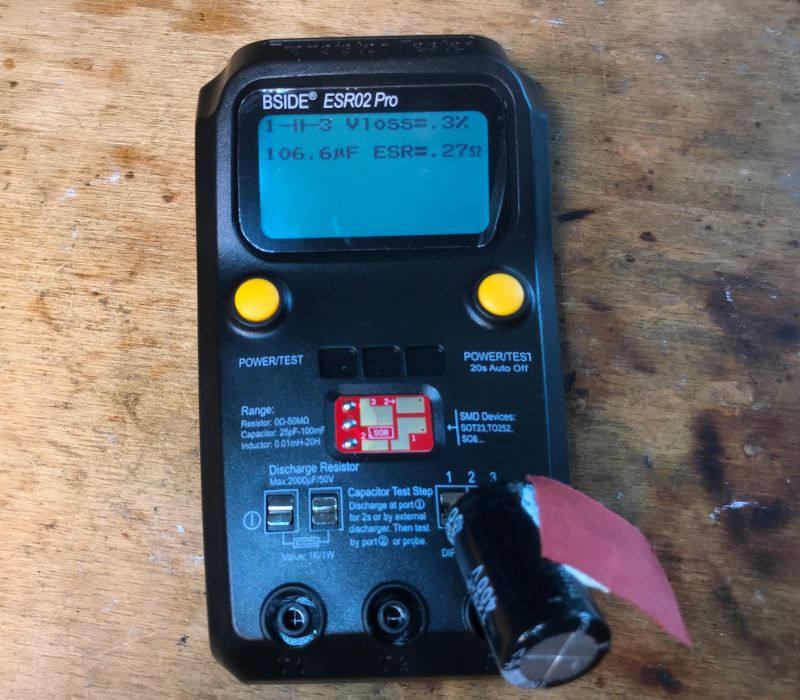
Comparisons and tests
Now I`m comparing the results from BSIDE ESR02 Pro with other testers, depending on what I measure there will be other competitors, because e.g. ESR70 only measures ESR... let`s start with capacitors:
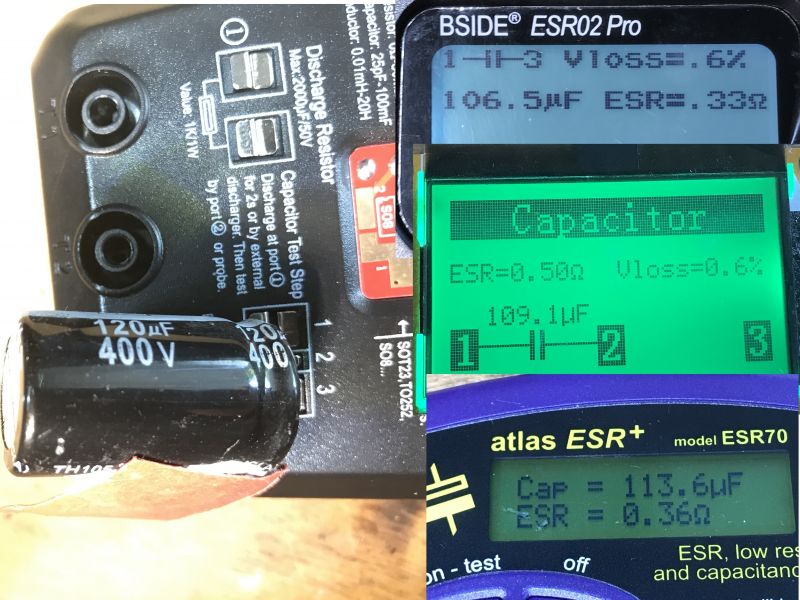
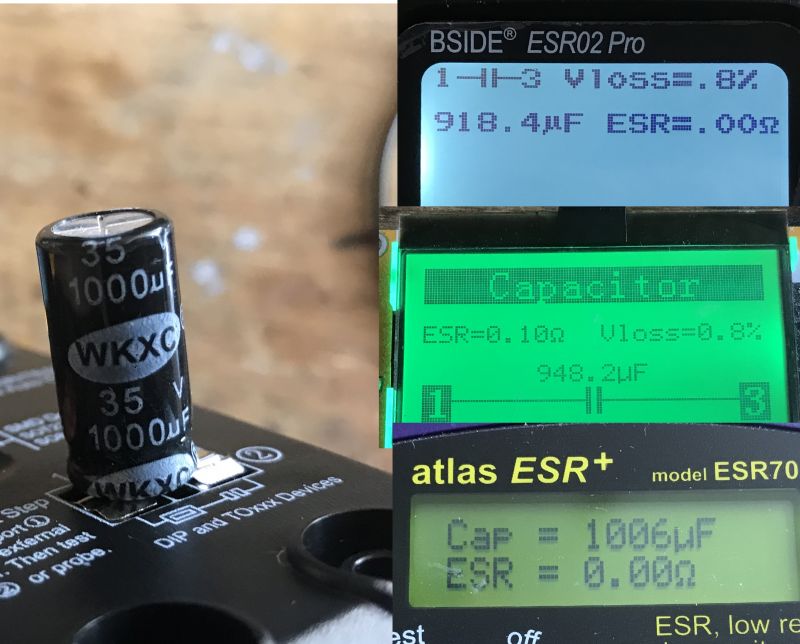
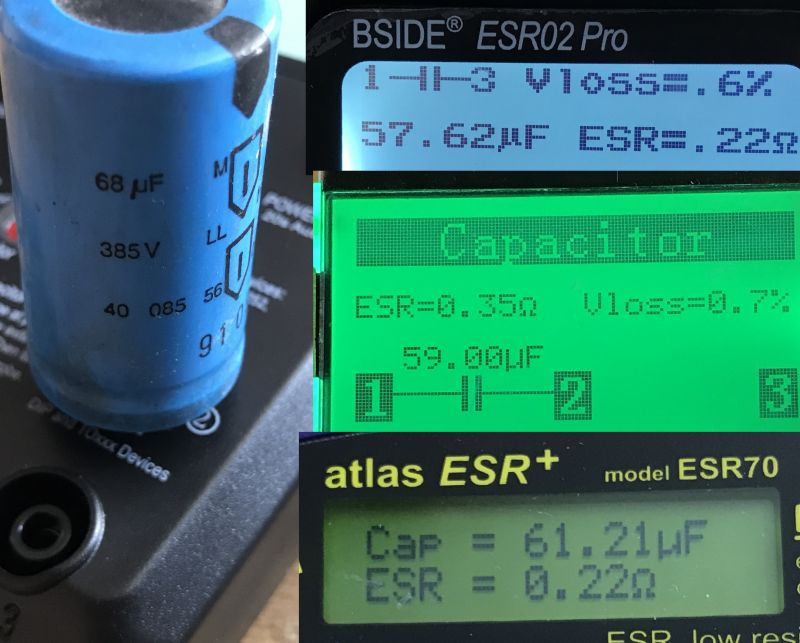
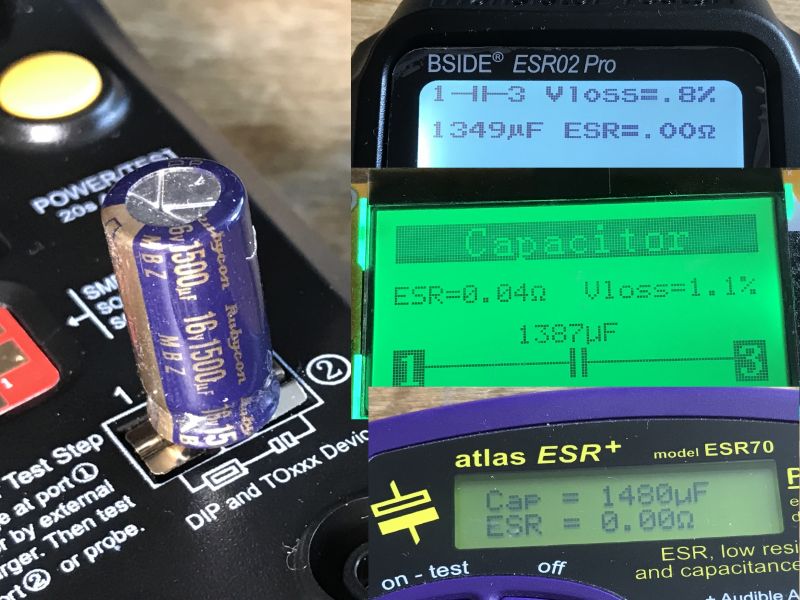
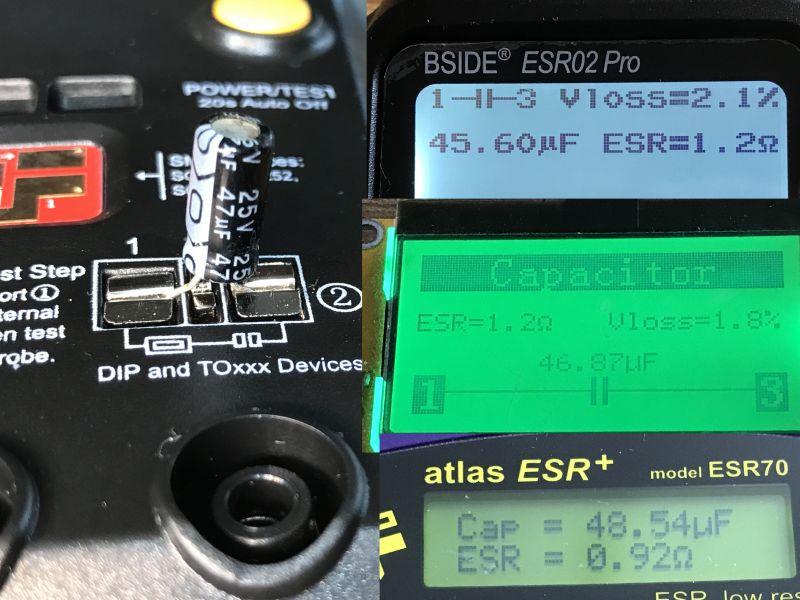
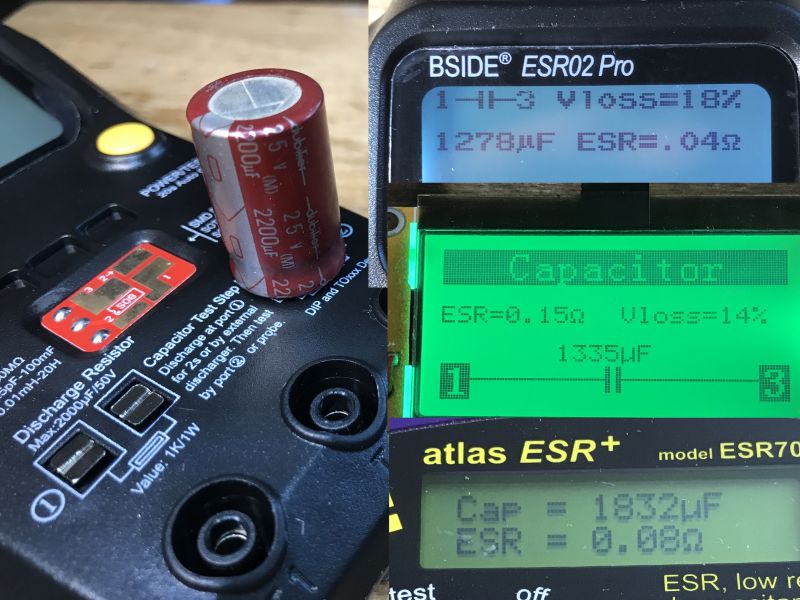
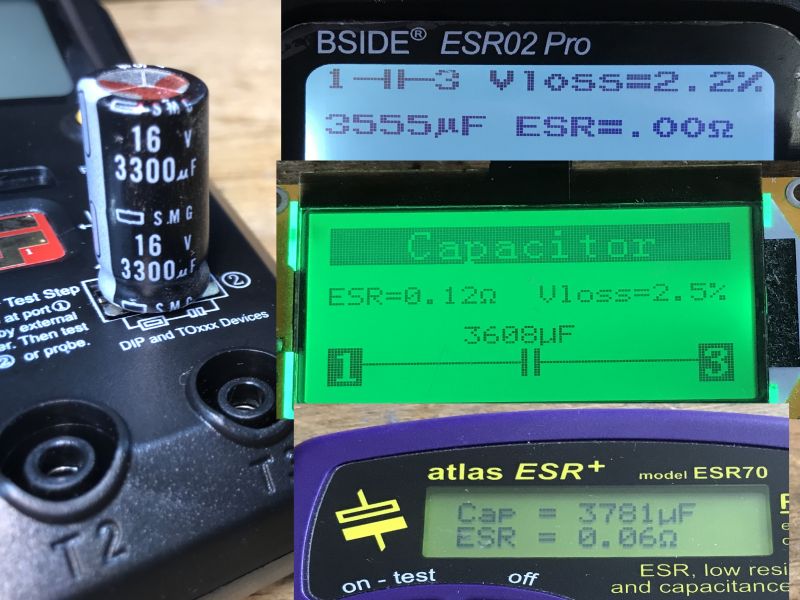
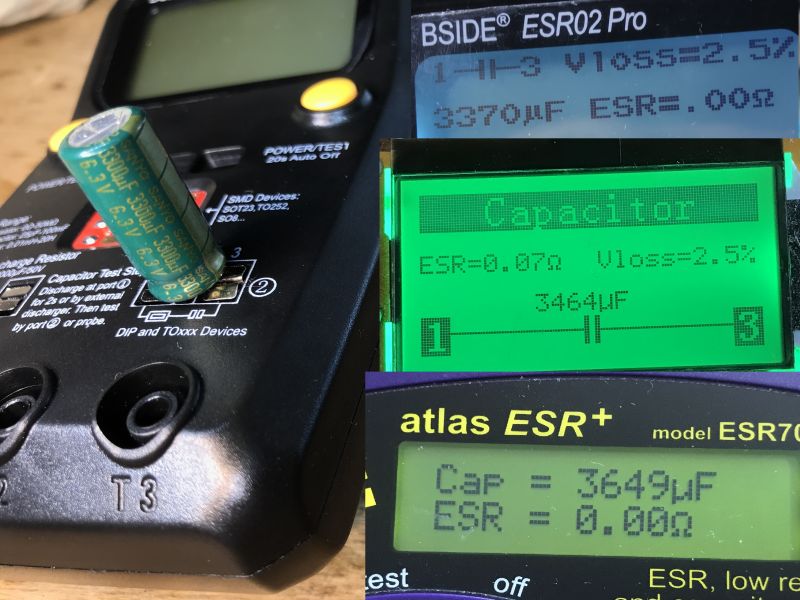
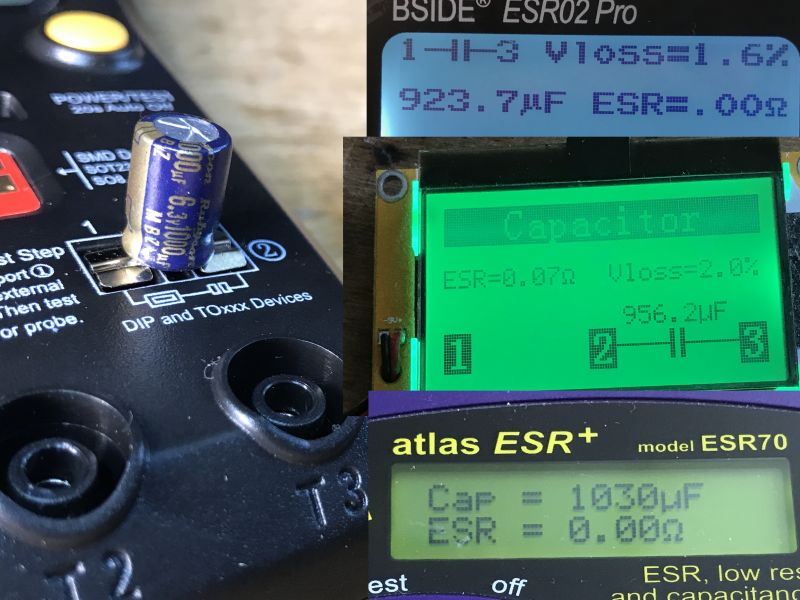
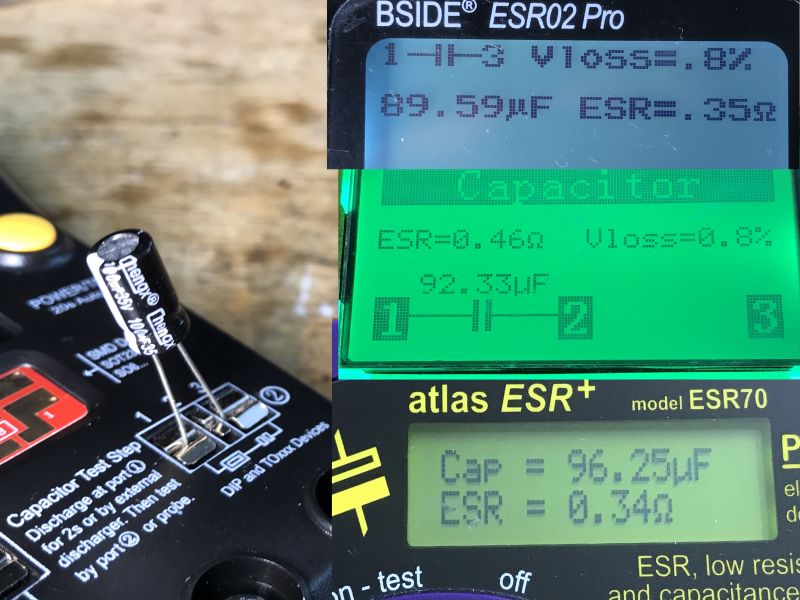
LCR-T4 seems to slightly overestimate ESR, or maybe the other two underestimate it?
Maybe now the BD140 transistor:
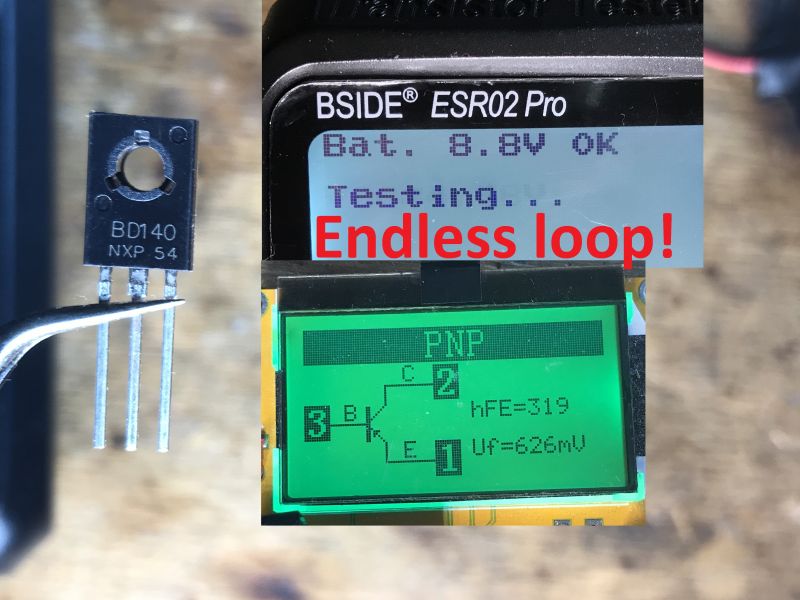
ESR02 gets into testing loops and produces no results.
1N5819 Schottky diodes:
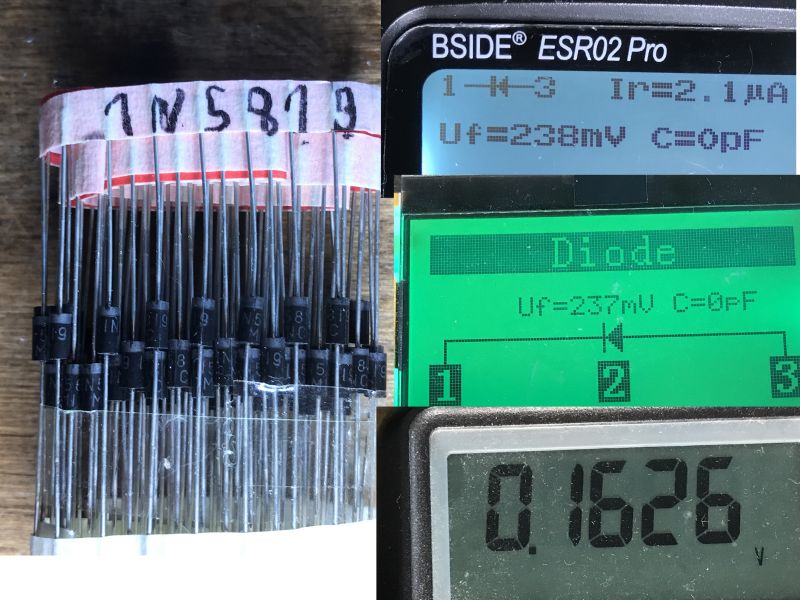
Brymen shows slightly lower voltage.
BC557:
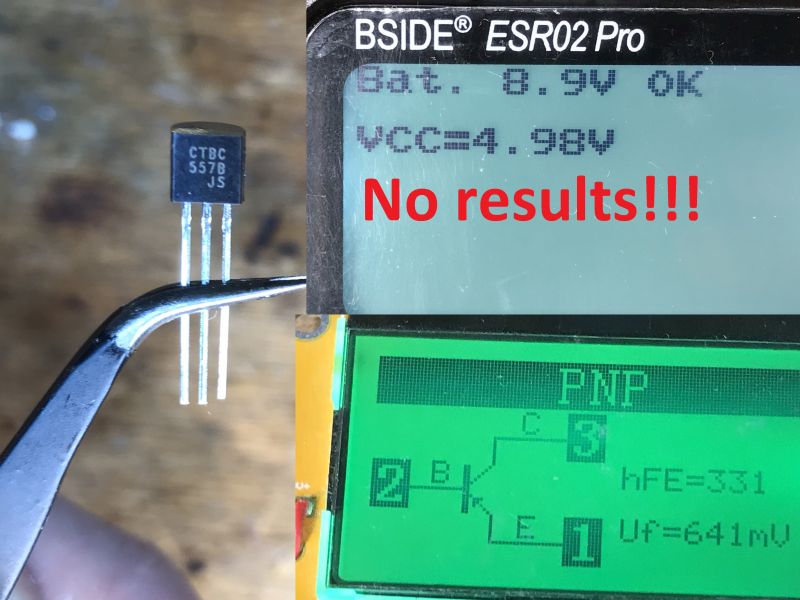
ESR02 failed again.
IRF510:
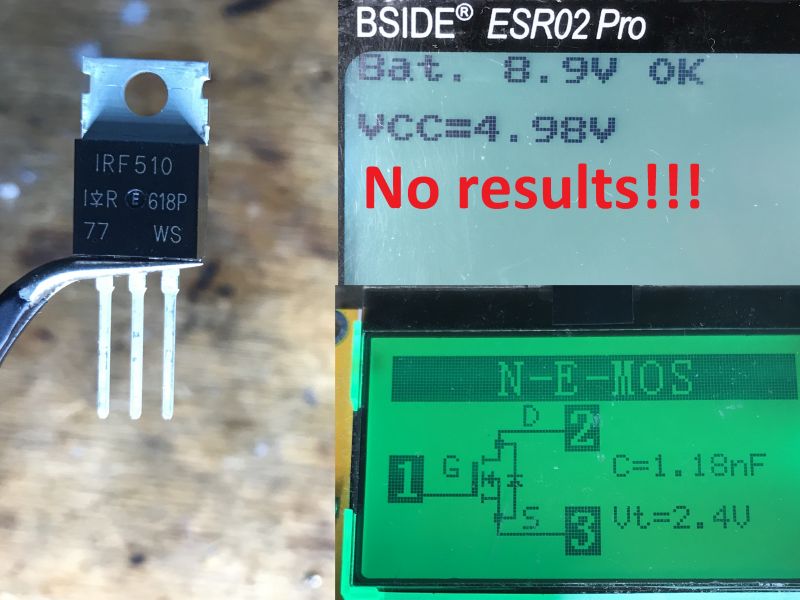
ESR02 failed again:
Measurement of the diode voltage drop - quite good, both testers give similar results, Brymen underestimates:
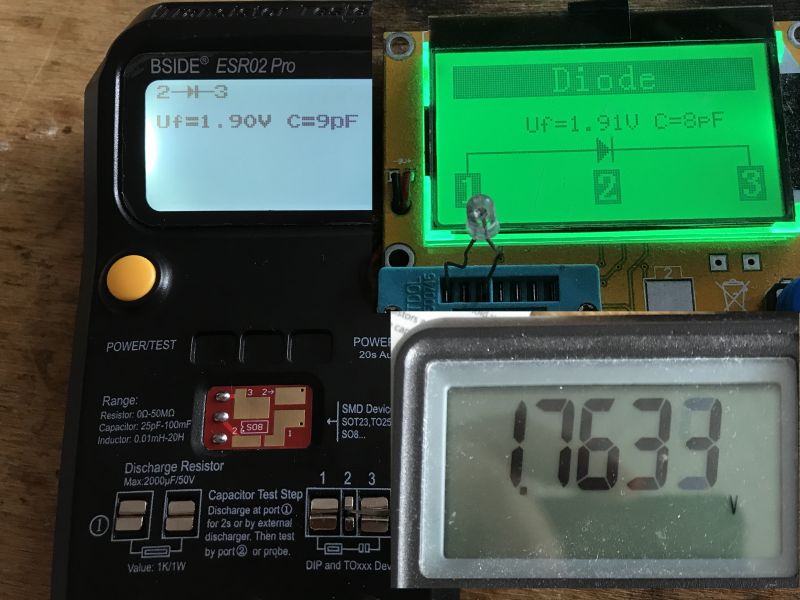
22uH choke:
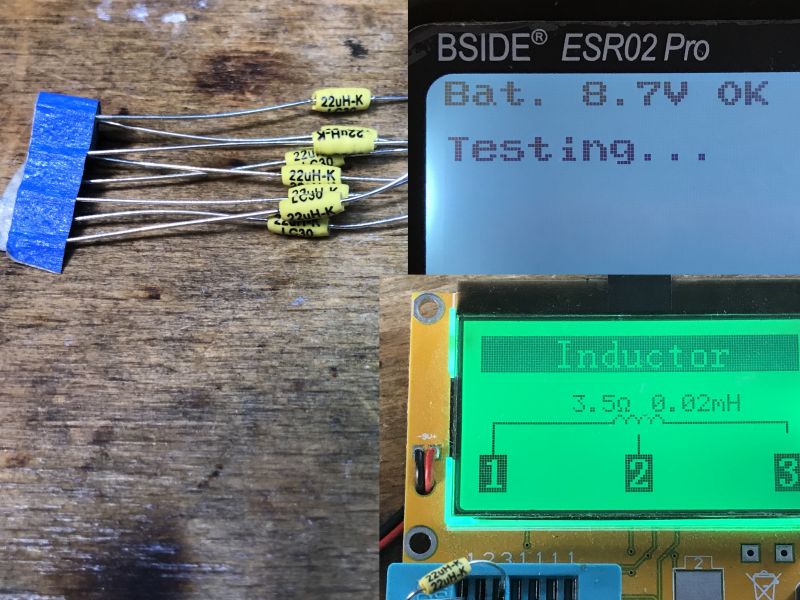
ESR02 failed.
220uH choke:
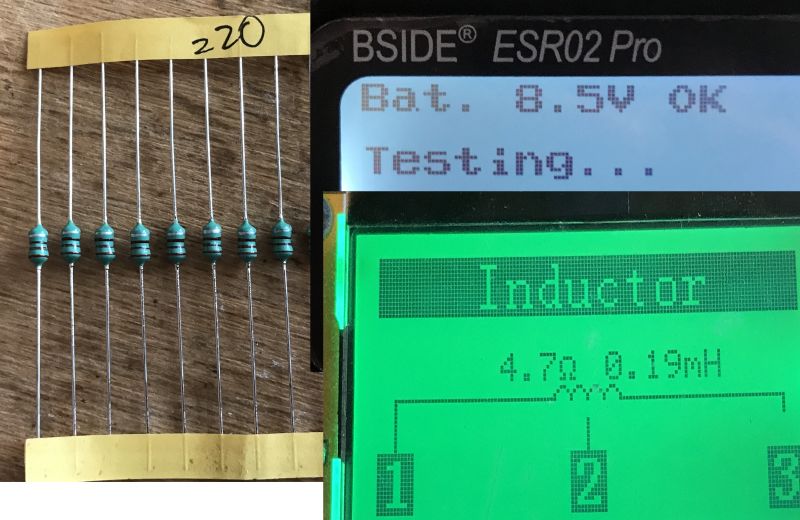
ESR02 failed.
100nF capacitor:
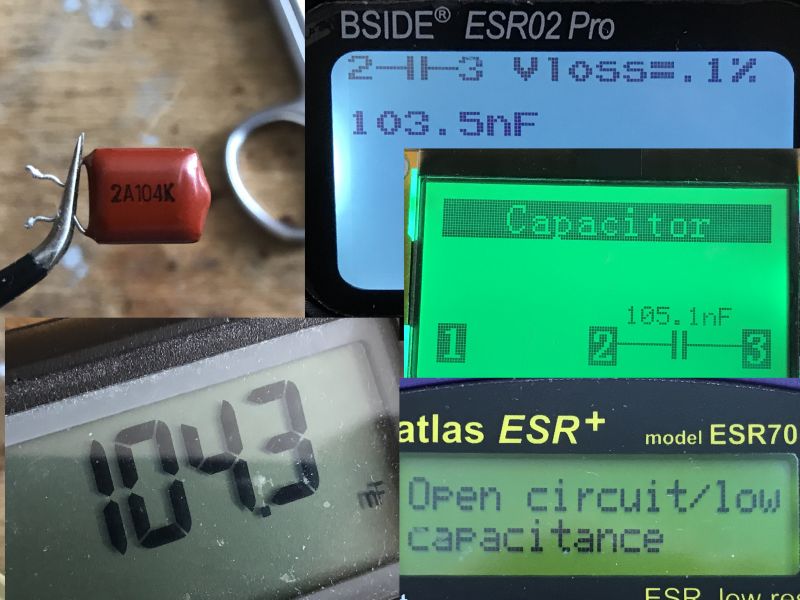
ESR70 couldn`t handle it, but that`s not what it`s for.
0.22 ohm resistor:
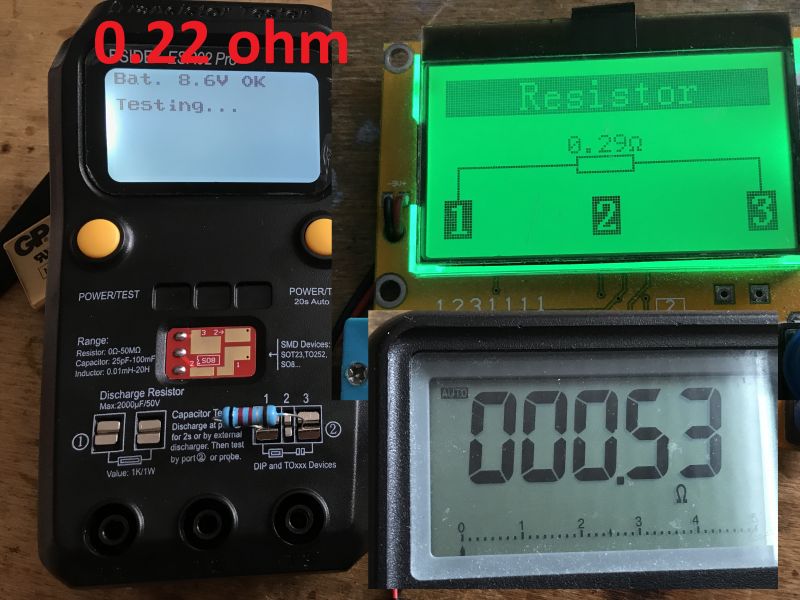
Only the LCR-T4 showed reasonable results.
100pF capacitor:
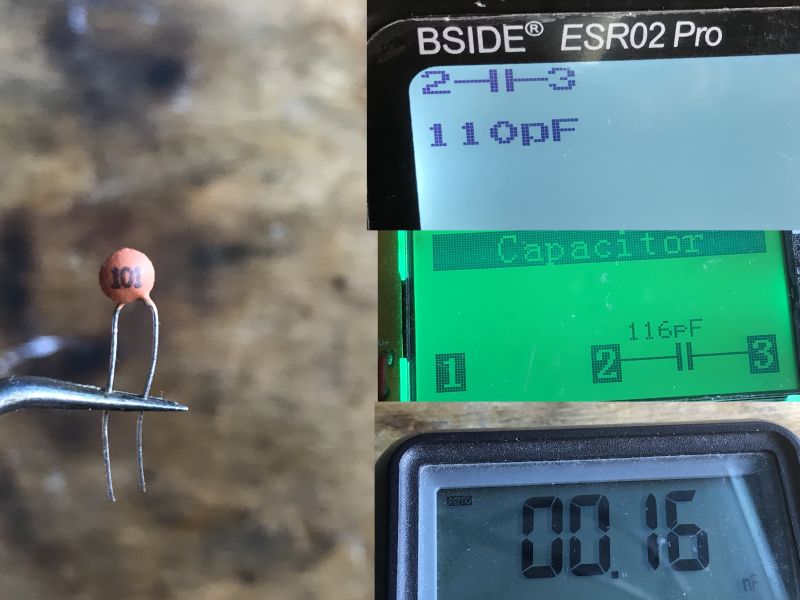
Brymen lost a bit.
IRFP460:
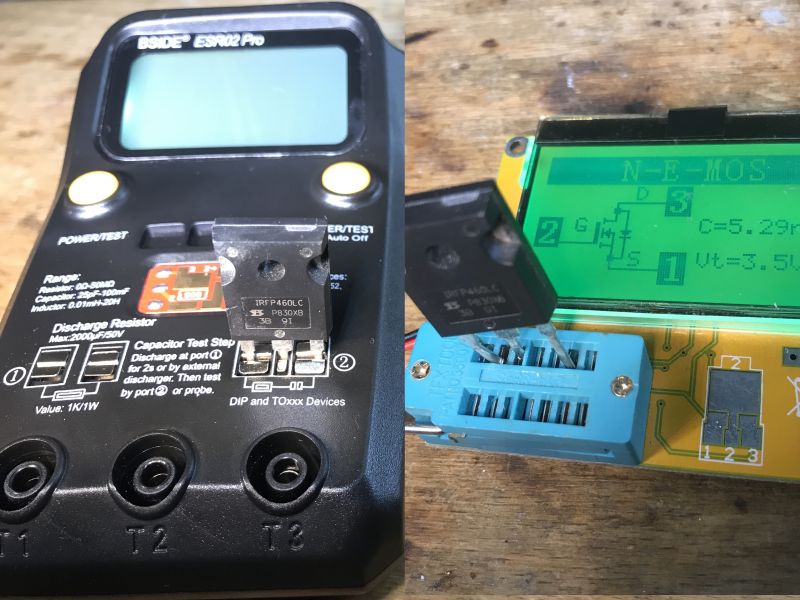
ESR02 failed.
1M Resistor:
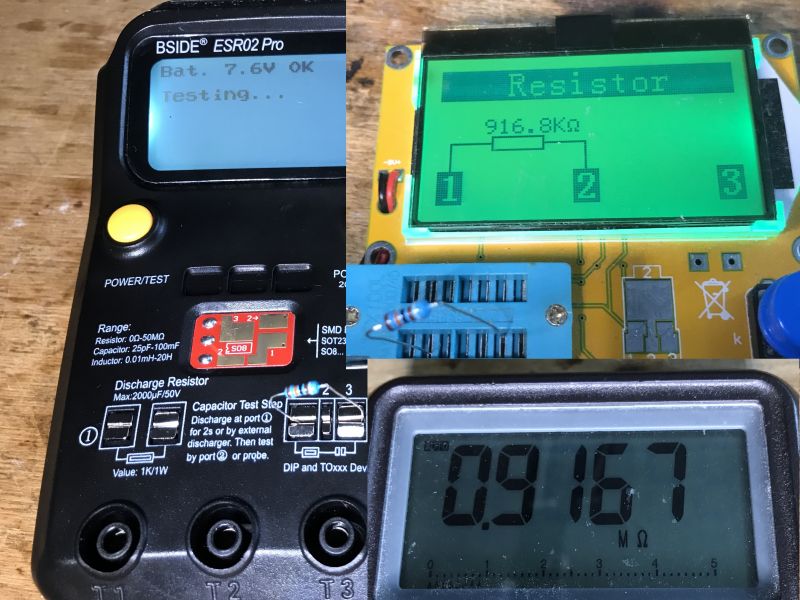
ESR02 failed...
Measurement time
ESR02 vs LCR-T4 vs ESR70:
Rather everything within expectations.
ESR02 interior
Unscrew the screws and look inside:
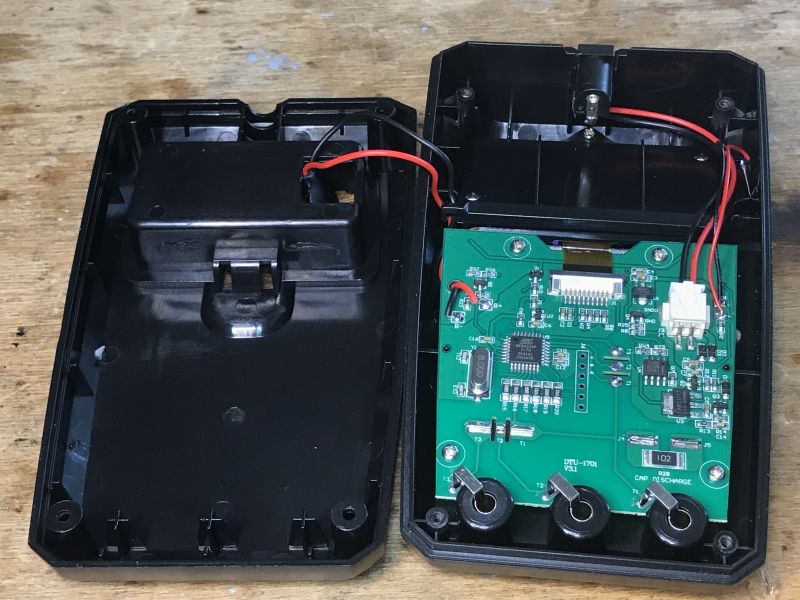
Yes, this is another Atmega-based tester, here on Atmega328P.
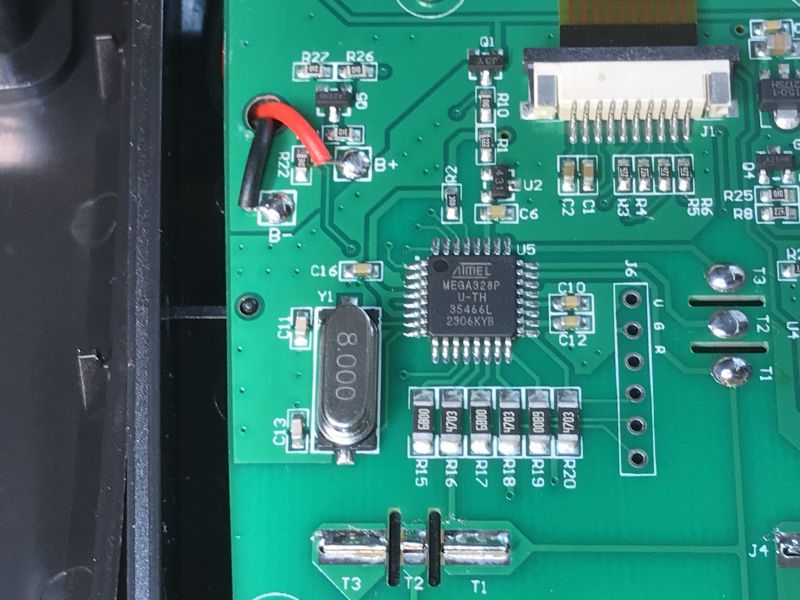
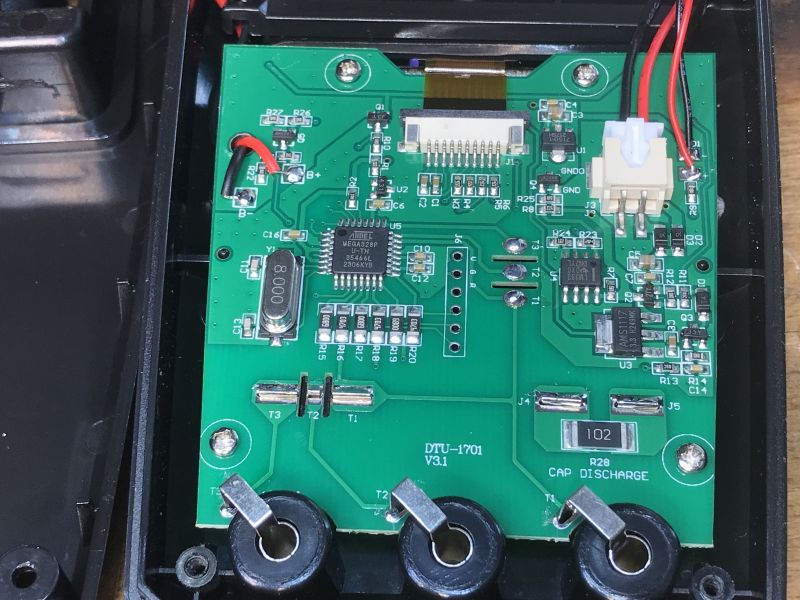
In addition, we have a 3.3V AMS1117 LDO and an LM393 compatator inside.
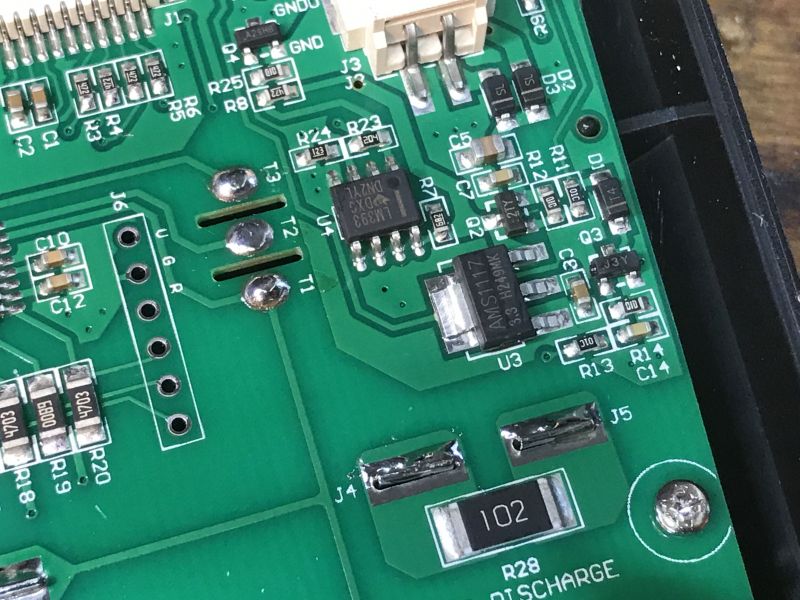
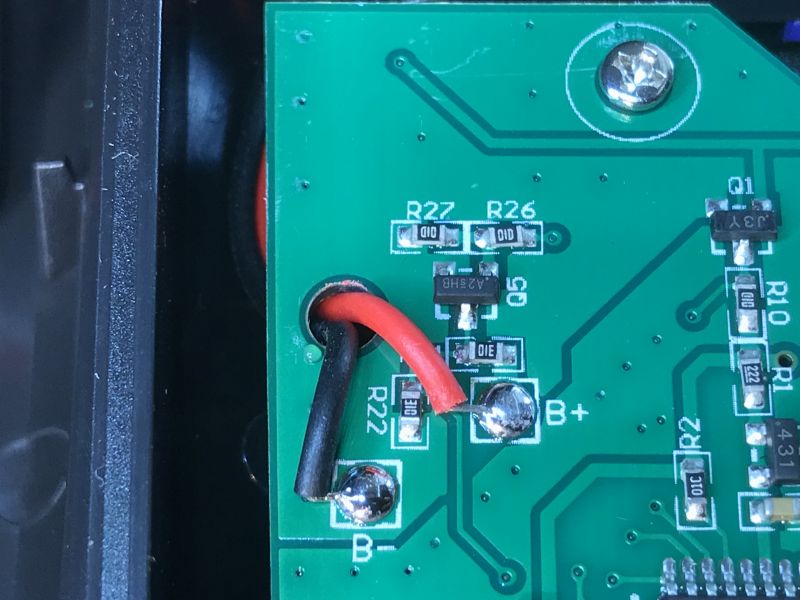
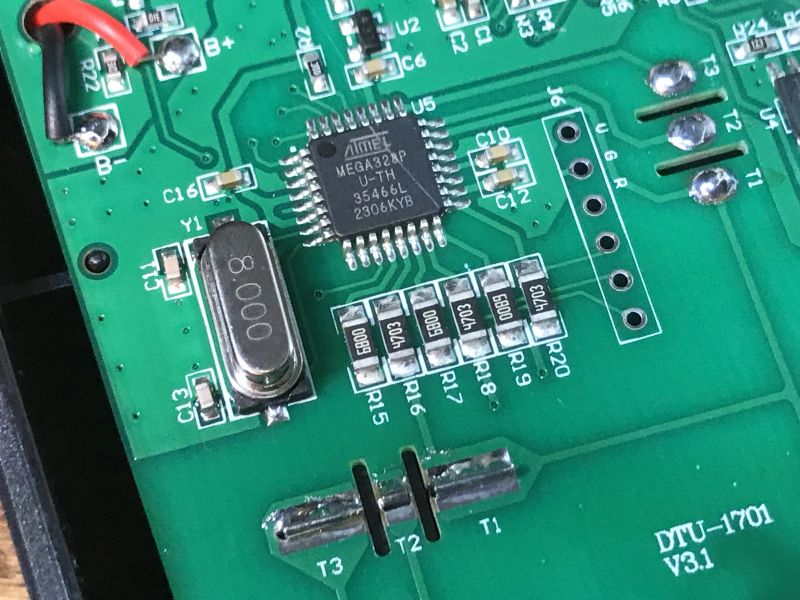
Summary
Initially, I thought that BSIDE ESR02 Pro would be an almost identical clone of the LCR-T4, but tests showed that it may be a clone, but it is worse. I don`t know, maybe I got a worse one, but even after repeating the calibration procedure, it didn`t want to measure some of the components. I`m starting to worry that I may need to change the firmware, but more about that another time. Anyway, I invite you to the discussion. I leave the specific analysis of the test results to you. Do you think ESR02 Pro makes sense? The case is nice.
PS: I see a mention of this tester here:
https://www.elektroda.pl/rtvforum/topic3402823-60.html#17297999
Apparently it is also known as DTU-1701
Cool? Ranking DIY Helpful post? Buy me a coffee.



